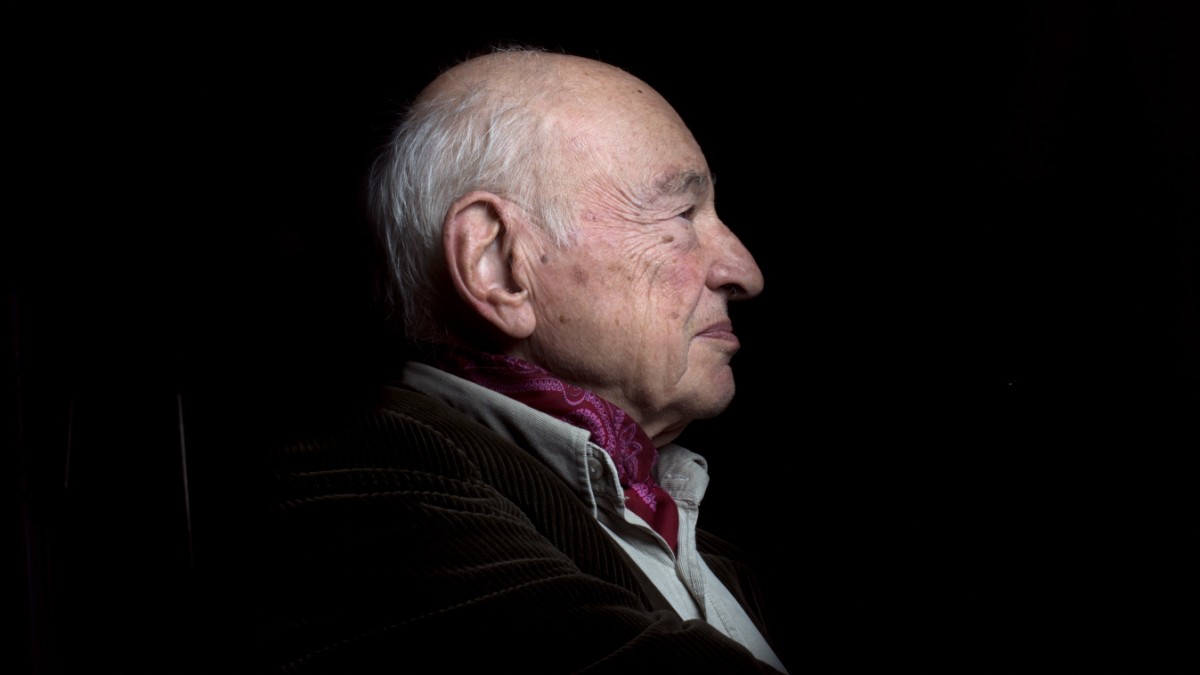In very old age the contemporary witness often grows beyond the thinker. The French sociologist Edgar Morin escapes this fate all the less since, at the age of 100 today, he continues to appear cheerfully in panel and television discussions. He speaks vividly of his political awakening after the Parisian right wing march with thirty dead on February 6, 1934, a year after Adolf Hitler came to power; about his Resistance time with Marguerite Duras and François Mitterrand, his relationships with Jean-Paul Sartre, Raymond Aron, Roland Barthes, Pierre Bourdieu, Régis Debray; tells of his engagements between the Algerian war, the 1968 movement, the Middle East conflict and the climate crisis.
Better known today than the scientific legacy of this man is the diversity of his statements as an intellectual contemporary. Little of it was planned in terms of career. Most of it arose from the respective situations, starting with the first published book in 1946 about Germany’s “Zero Hour” after the war.
“You are securing your exclusion from the communist party”, a comrade is said to have warned him after reading the manuscript of that book. At least that’s how Morin remembers in his memoir “Les souvenirs viennent à ma rencontre”, published two years ago. After his time as a communist resistant, he came to Germany in 1945 as an attaché to the French army and described in his book the state of a destroyed country and a broken people.
Instead of the cosmos, we now have a planet
Contrary to the anti-German mood in France at the time, Morin insisted on the distinction between Germans and Nazis. Even the worst Nazi atrocities would never have made him forget the importance of pre-war German cinema, the works of Lessing, Goethe, Holderlin or Beethoven’s music. Such a differentiation of the gaze characterizes Edgar Morin’s entire life’s work and led to the theory of the “pensée complexe”, the thinking of complex contexts, the foundations of which he tried to conceptualize from 1977 in his six-volume cycle “La Méthode”. Since the early post-war period he has been one of the pioneers of interdisciplinary research.
Edgar Nahoum, born in Paris in 1921 to Jewish parents, had long had the pseudonym Edgar Morin from the Resistance years. Under him he published all of his five dozen books. Sociological studies, philosophical reflections on Marx and Hegel, political essays on the society of mass communication, the development of Europe, the crisis of the left and, recently, increasingly on ecological issues. He likes to put all of this into the bigger picture. With the conquest of America and the Copernican change, the cosmos broke up over mankind and a planet emerged under their feet, he wrote in 1993 in his book “Heimatland Erde”. The “planetary age” had begun under the sign of violence, destruction, exploitation and slavery, and we have only just started to this day.
Morin’s scientific career began in 1967 with a study of the transformation of the Breton village of Plozévet through industrialized agriculture and modernization. After Émile Durkheim’s theoretical sociological tradition waned, Morin’s scientific foster father, Georges Friedmann, sought to introduce field research based on the American model in France and brought him to the national research organization CNRS. But it was also the time of structuralism, semiological and psychoanalytically oriented social analysis and their message of the “end of man”. Morin couldn’t do much with her. Just as alien to him, however, was Pierre Bourdieu’s single-track commitment to science, which determinedly asserted itself beyond France. So Morin remained an outsider in the field of sociology with no school and no students.
The recent tendency towards populist simplification makes his thinking topical again
The recent tendency towards populist simplifications has given his postulate of multiple crossed perspectives and complex thinking to a new topicality. With his fresh vigor without claim to age wisdom, the restless old man is a popular guest in public discussions. Like Jean Baudrillard, who died in 2007, he belongs to that class of cosmopolitan French intellectuals who go their own way of commitment apart from the established Parisian circles. This is carried by the ideal of a non-dogmatic, ecological socialism. Since the book “Autocritique” published in 1959 about his communist party membership, he has continuously tried to question his own positions.
The resulting somewhat general plea for a brotherly society in harmony with nature, he makes up for with resolute political statements on controversial issues such as the Middle East conflict. For a sharp criticism of Israeli settlement policy, in which he lamented the transformation of the “most persecuted people in human history” into a nation of “people who despise human beings”, he stood before a French court in 2005 for racist defamation and was portrayed as “Jewish self-haters”. For this contemporary witness, who has more of a cheerful visionary than a polemic agitator, exaggerated formulations are never an end in themselves, but an incentive to think more clearly. Even at the age of 100.
Paul is a talented author and journalist with a passion for entertainment and general news. He currently works as a writer at the 247 News Agency, where he has established herself as a respected voice in the industry.












